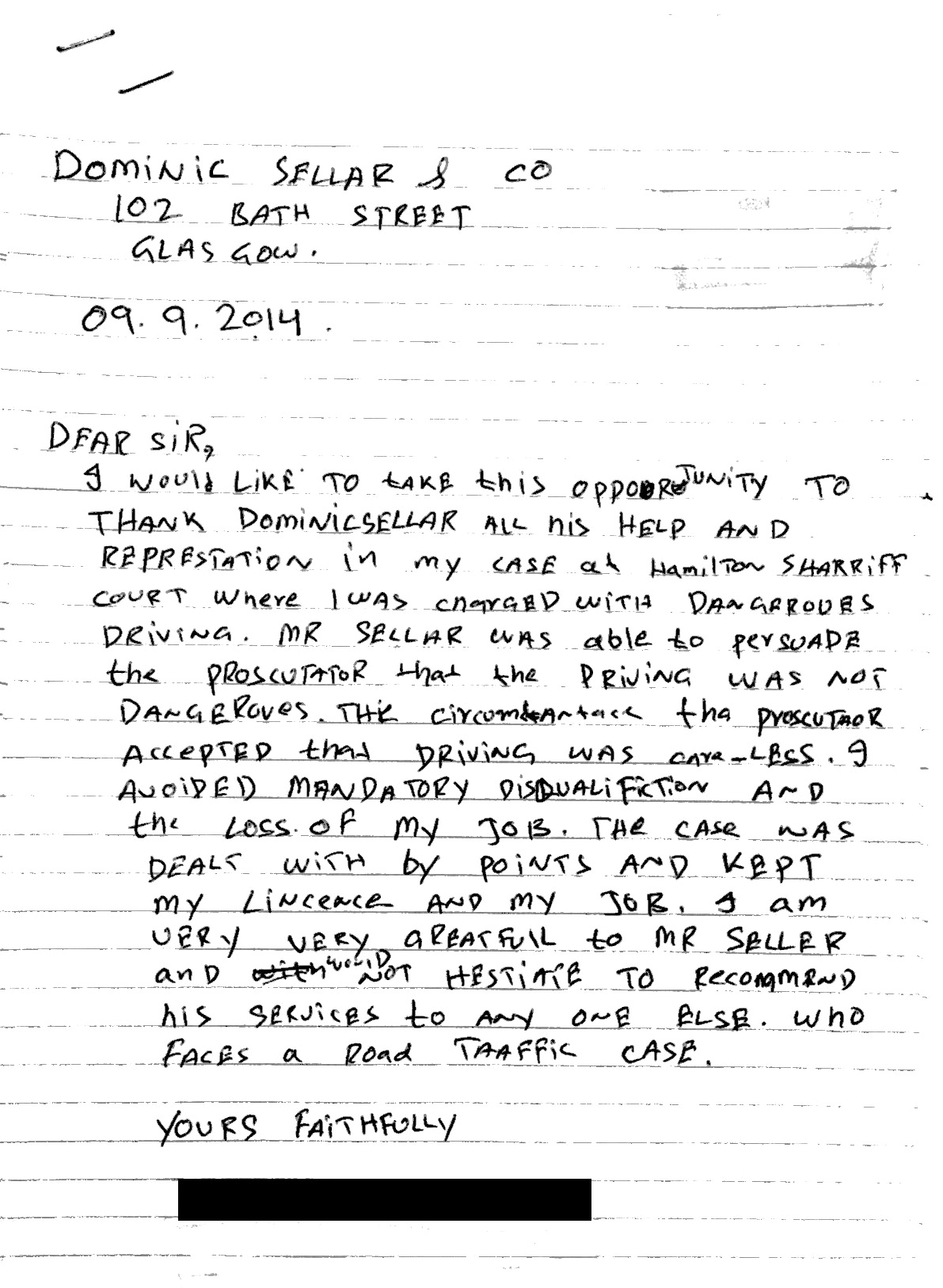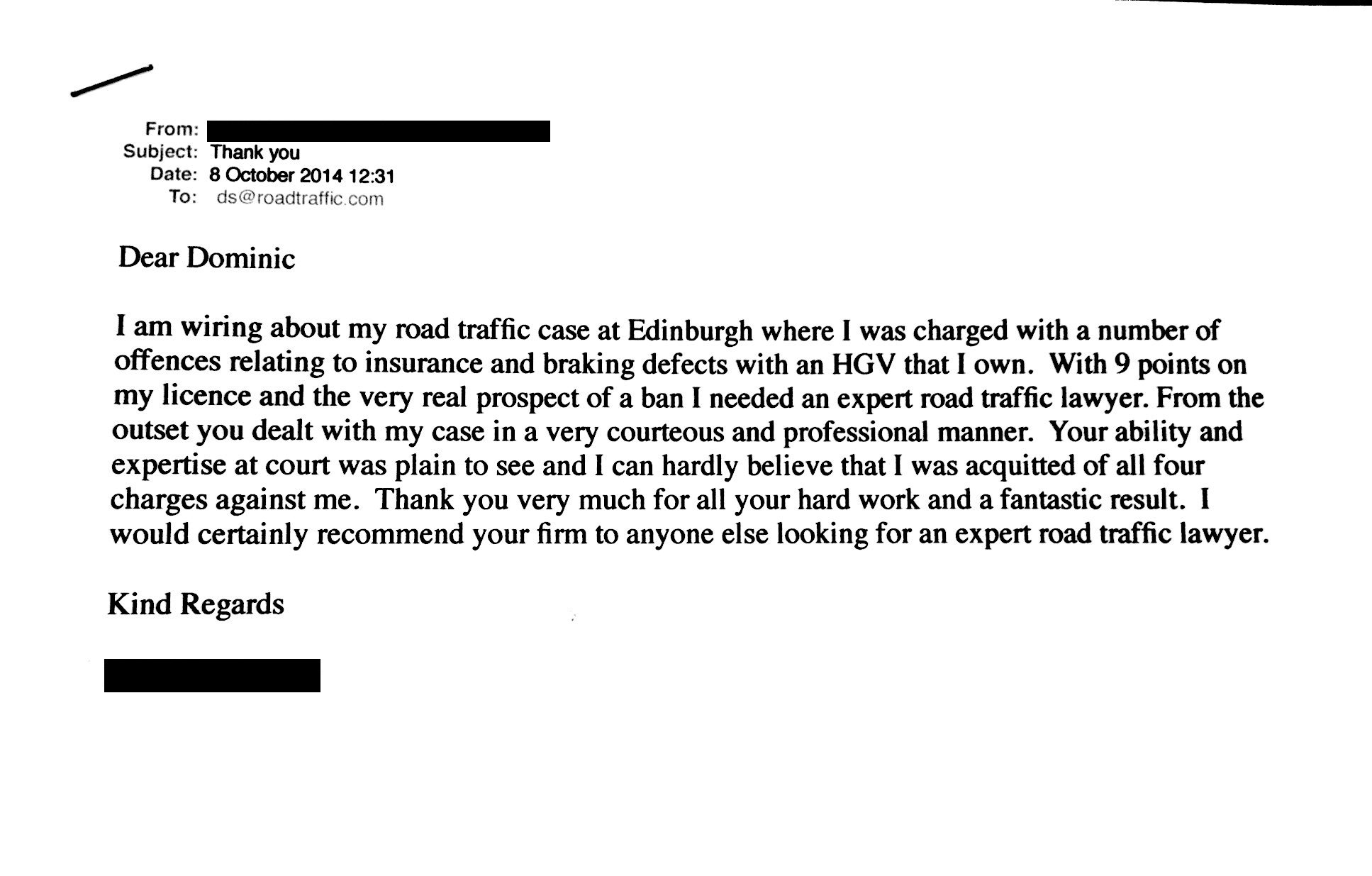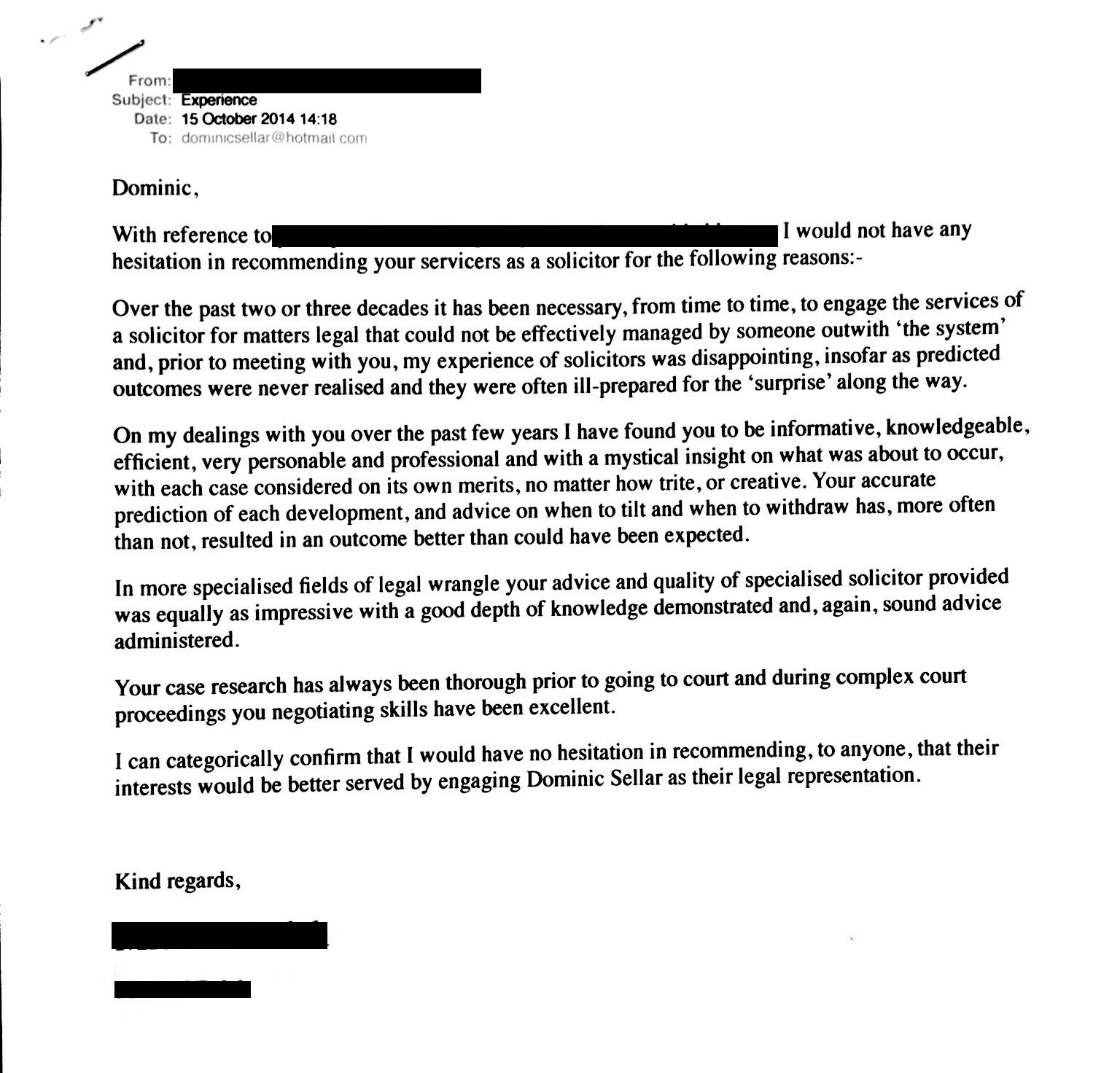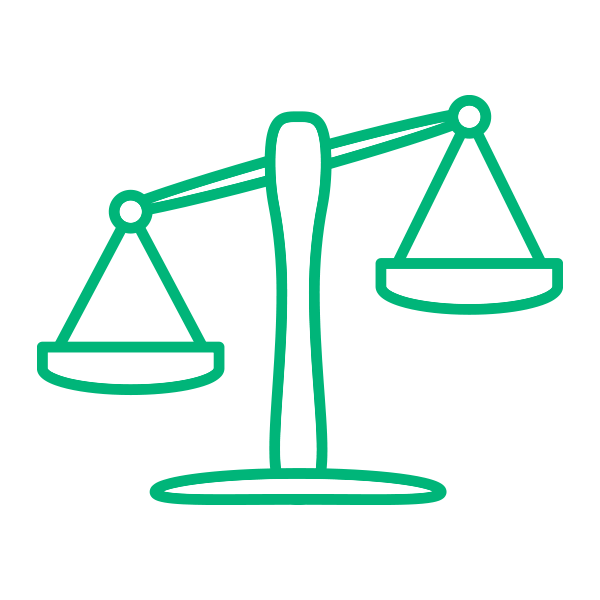Section 34(1) Road Traffic Offenders Act 1988
Where a driver is convicted or simply accepts that he is guilty of an offence he may be able to establish that there are Special Reasons why penalty points should not be endorsed on his licence. The same principle applies to offences that attract discretionary and mandatory periods of disqualification. This means that if a driver proves that Special Reasons exist the court will either reduce the period of disqualification or impose no disqualification at all.
What’s required for Special Reasons
Put in its simplest form Special Reasons can be described as a reasonable explanation for why the offence took place which justifies the court from not imposing the usual penalties. There is no legal definition, but a number of cases have established that Special Reasons must:
- Be a mitigating or extenuating circumstance
- Not amount to a legal defence
- Be directly related to the offence itself and
- Be one which the court ought to properly take into consideration when imposing a sentence.
Special Reasons can arise in a variety of circumstances and each case will be decided on its own unique facts. A Special Reason is not a legal defence to the charge in question, and it will only apply where the driver either accepts he has committed the offence or where he has been convicted of an offence after trial. Special Reasons must be directly related to the commission of the offence and cannot refer to the personal circumstances of the driver. This means that the consequences of penalty points or disqualification on the driver cannot amount to Special Reasons. Therefore the loss of employment and consequent hardship to the driver or his family cannot amount to Special Reasons.
Types of Offence where Special Reasons can apply
Special Reasons can apply to most road traffic offences, including:
- Speeding
- Running a red light
- Dangerous driving
- Careless driving
- Vehicle defects
- Drink driving
- Driving without insurance
Procedure for Special Reasons
An application for Special Reasons must be raised by the driver at the time of sentence. This should happen at the point at which he is convicted or where he accepts he committed the offence and pleads guilty. In the normal course of events, once an application for Special Reasons has been made the court will fix a date for a hearing which is called a Special Reasons Proof.
The onus or responsibility is on the driver to prove that Special Reasons exist and that these would justify the court from not imposing penalty points or disqualification. In practice the driver will give evidence and lead other evidence to establish that there are Special Reasons. Defence witnesses may also be called to support the application for Special Reasons. If this evidence is not accepted by the prosecutor the driver will be cross-examined and the evidence he relies on will be challenged. Conversely, the prosecutor may accept what is said by the driver. In this situation, the court can simply hear submissions in the absence of evidence.
The Court’s Decision
Some of the issues that a court may look at when considering special reasons include:
- how far the vehicle was driven
- the manner of driving
- the condition of the vehicle
- whether the driver was intending to go further
- road and traffic conditions
- the possibility of danger to other road users.
At the conclusion of the hearing the court will make a decision that Special Reasons have or have not been established. Where Special Reasons are established the court can order that no penalty points are endorsed on the licence. If the offence carries disqualification, the court can reduce the period of disqualification or impose no disqualifiaction at all.
Examples of Special Reasons
- Medical emergency or some other emergency
- The shortness of the distance driven
- Escaping danger or threatening behaviour
Special Reasons & Driving without Insurance Offences
Special Reasons may apply if the driver or owner of the vehicle can establish that:
- there was a genuine and honest belief that insurance cover was in place
- the genuine and honest belief was based upon reasonable grounds
Special Reasons & Drink Driving Offences
With drink related offences Special Reasons might apply if the driver can establish that:
- his drink was spiked or laced
- he was escaping violence
- there was some other emergency

How we can help
If you think you may have an argument for Special Reasons that will avoid penalty points or disqualification then we can help. Our experience and expertise in this area will quickly determine the merits of your case and all other options that might be available to you. Early expert advice can save time and expense. We can prepare your case, arrange for supporting documentation and make forceful representations at court. We pride ourselves in offering a service that is friendly, reliable and honest. As specialist road traffic lawyers we believe that we will offer you the right advice. For free advice that is without pressure or obligation simply contact us:
Call Now or Request a Callback
Independent Reviews
Go online or have a look at the reviews below to see why we’re the right solicitors for you.
Trustpilot
Google
Facebook
Client Letters
-
I honestly couldn’t praise Dominic enough!!
I honestly couldn’t praise Dominic and this fantastic company enough. I had direct communication from Dominic after I was recommended to acquire their services. Dominic was first class from the off, kept me updated through out and was an absolute gentleman. So my advice would be if you require any assistance in terms road traffic […]
-
Excellent lawyers firm.
I had a drink driving charge and speeding charge. I found Dominic Sellar & Co online. Dominic discussed my case with no obligation telephone consultation and advised me of what lay ahead. I decided to use his support & services.Dominic was not able to attend court on the day of my case but his partner […]
-
Dominic Sellar & Co
Dominic Sellar & Co. left a lasting impression with their remarkable and thorough approach. Their meticulous attention to detail and commitment to excellence were evident throughout the entire process. The professionalism and expertise demonstrated by the team were truly commendable, making the experience both impressive and reassuring.
-
Speeding Driving Charge – 1st Class Service
Recently hired Dominic for a speeding charge I received. My experience was first class from start to finish upfront cost no hidden charges and communication from Dominic at all times was amazing only a phonecall away.
-
Multiple Charges
I was facing multiple charges and Dominic sorted Everything out. I’m absolutely delighted by the outcome. And would recommend him to anyone needing a traffic lawyer.
-
Honest and trustworthy service
facing a very difficult situation of a lengthy ban Dominic managed to fight my corner which resulted in a more manageable short term ban. What I liked about Dominic was that he was very straight talking and was very honest. Wouldn’t hesitate to recommend him.
-
Dominic was great from the start
Dominic was great from the start, advice and possible outcomes. Handled my case with minimum fuss. The outcome was better than I could have hoped for. Hopefully I will not need you again, but should I face the same predicament I wouldn’t go anywhere else. Highly recommend. Thank you again.
-

Mr SF, Glasgow
“I would like to take this opportunity to thank Dominic Sellar for all his help and representation in my case at Hamilton Sheriff Court where I was charged with Dangerous Driving. Mr Sellar was able to persuade the prosecutor that the driving was not dangerous…the Prosecutor accepted that the driving was careless. I avoided a […]
-

Mr K, Manchester. Construction & Use Case
“I am writing about my road traffic case at Edinburgh, where I was charged with a number of offences relating to insurance and braking defects with an HGV that I own. With 9 points on my licence and the very real prospect of a ban I needed an expert road traffic lawyer. From the outset […]
-

Mr BM, Aberdeen
“…I would not have any hesitation in recommending your services as a solicitor…I have found you to be informative, knowledgeable, efficient, very personable and professional and with a mystical insight on what was about to occur, with each case considered on its own merits, no matter how trite, or creative. Your accurate prediction of each […]
